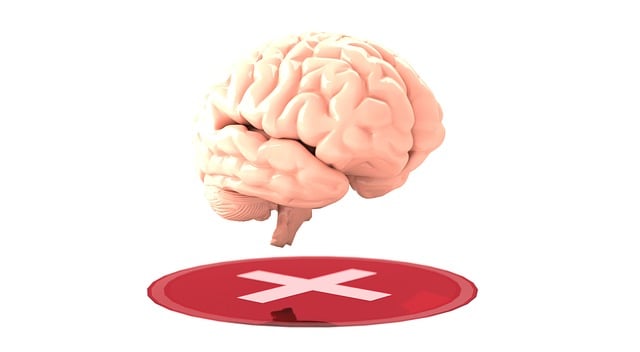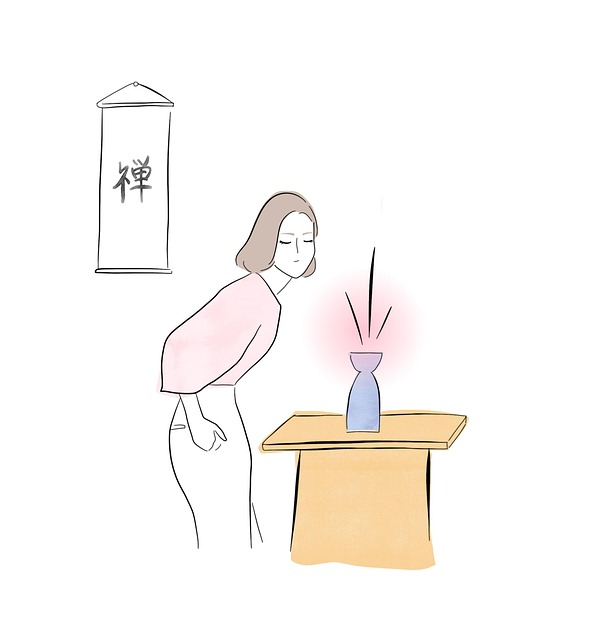Longmont Chronic Pain Therapy addresses healthcare provider burnout—a growing concern impacting patient care—through specialized services focusing on cognitive reframing, emotional regulation, and crisis intervention. Exhausted professionals are less effective, leading to errors, reduced treatment adherence, and patient disengagement. Effective strategies like stress management, self-awareness exercises, mindfulness meditation, and positive thinking prevent burnout, enhance well-being, and improve patient outcomes. Longmont Chronic Pain Therapy fosters a supportive environment with open dialogue about emotional challenges, encouraging staff to seek support and share coping strategies. Prioritizing self-care through regular routines and initiatives like the Mental Wellness Podcast Series creates a culture that values employee mental health, ultimately improving patient care.
Longmont Chronic Pain Therapy (LCPT) is committed to addressing the pressing issue of healthcare provider burnout. This comprehensive guide explores strategies tailored to LCPT’s unique environment, aiming to mitigate burnout among its team. We delve into understanding burnout’s pervasive impact on patient care and explore evidence-based practices for stress management and work-life balance. Additionally, we emphasize fostering supportive workplace cultures and encouraging self-care to ensure the long-term well-being of our healthcare providers at LCPT.
- Understanding Burnout Among Healthcare Providers
- The Impact of Burnout on Patient Care at Longmont Chronic Pain Therapy
- Strategies for Stress Management and Work-Life Balance
- Fostering a Supportive Environment at Longmont Chronic Pain Therapy
- Encouraging Self-Care Practices for Long-Term Burnout Prevention
Understanding Burnout Among Healthcare Providers

Burnout among healthcare providers is a growing concern, impacting not just individual well-being but also patient care and outcomes. It’s crucial to recognize that this phenomenon extends beyond mere job dissatisfaction; burnout involves emotional exhaustion, depersonalization, and a sense of reduced personal accomplishment—a trifecta that can lead to crisis intervention guidance being needed for providers to cope effectively. Longmont Chronic Pain Therapy, among other specialized services, has emerged as a beacon of hope in addressing these issues.
Understanding burnout requires acknowledging the unique pressures healthcare professionals face daily. From demanding work schedules to high-stress situations, these factors can erode resilience and contribute to a decline in confidence boosting strategies. Applying Mind Over Matter principles, which emphasize cognitive reframing and emotional regulation, offers valuable tools for navigating these challenges. Crisis intervention guidance is also integral, providing immediate support to help providers manage stress, maintain work-life balance, and prevent burnout from escalating.
The Impact of Burnout on Patient Care at Longmont Chronic Pain Therapy

At Longmont Chronic Pain Therapy, the impact of healthcare provider burnout is starkly felt in the quality of patient care. Exhausted and emotionally drained professionals are less equipped to provide attentive, empathetic support, leading to diminished patient outcomes. Studies show that burnout significantly increases error rates, reduces treatment adherence, and can even cause patients to disengage from their care plans due to a perceived lack of concern or understanding.
The consequences extend beyond individual sufferers; they reflect on the entire healthcare system. Burnout among providers at Longmont Chronic Pain Therapy could lead to higher patient turnover, reduced access to care for chronic pain management, and ultimately, worse health outcomes for a vulnerable population. Implementing effective burnout prevention strategies, such as promoting anxiety relief techniques and fostering self-esteem improvement, is therefore paramount not just for the well-being of healthcare professionals but also for ensuring optimal patient care within the Longmont Chronic Pain Therapy community.
Strategies for Stress Management and Work-Life Balance

Maintaining a healthy work-life balance is a critical aspect of burnout prevention for healthcare providers. Longmont Chronic Pain Therapy offers valuable tools such as stress management techniques and self-awareness exercises, which can significantly enhance professionals’ ability to cope with demanding work environments. By incorporating practices like mindfulness meditation or positive thinking exercises into their daily routines, healthcare workers can reduce stress levels and improve overall well-being.
These strategies not only benefit individual practitioners but also positively impact patient care. When healthcare providers prioritize self-care and maintain a balanced lifestyle, they become more present and engaged in their work. This leads to improved decision-making abilities, enhanced empathy towards patients, and ultimately better outcomes for those seeking medical assistance, including chronic pain management in Longmont.
Fostering a Supportive Environment at Longmont Chronic Pain Therapy

At Longmont Chronic Pain Therapy, we understand that burnout is a significant concern for healthcare providers working with chronic pain patients. A supportive and nurturing environment plays a pivotal role in preventing this issue. Our team fosters an atmosphere where every individual feels valued and heard, reducing the mental strain often associated with treating complex conditions like chronic pain. We believe in empowering our providers through self-esteem improvement initiatives, ensuring they have the confidence to offer top-tier care.
By implementing mental illness stigma reduction efforts, we create a safe space for open dialogue about emotional challenges. This encourages our staff to seek support and share strategies for coping with stress. Incorporating mind over matter principles into our practice allows healthcare providers to reframe their perspective, promoting resilience in the face of demanding situations. These collective approaches contribute to a thriving work environment at Longmont Chronic Pain Therapy, where burnout is mitigated, and professionals can thrive while assisting patients in managing their chronic pain journeys.
Encouraging Self-Care Practices for Long-Term Burnout Prevention

In the ongoing fight against healthcare provider burnout, encouraging self-care practices is a key strategy for long-term prevention. Healthcare professionals, like those seeking Longmont Chronic Pain Therapy, often put patients’ needs ahead of their own, leading to emotional and physical exhaustion. Incorporating regular self-care routines can help maintain resilience and mitigate the risks associated with burnout. This includes activities such as exercise, mindfulness practices, adequate sleep, and engaging in hobbies outside of work. These practices not only support mental health but also enhance overall well-being, enabling healthcare providers to sustain their dedication over time.
A robust Mental Health Policy Analysis and Advocacy is crucial to fostering an environment that prioritizes self-care. Through initiatives such as the production of Mental Wellness Podcast Series, we can raise awareness about burnout prevention strategies, including techniques for improving self-esteem. By addressing mental health openly and providing resources like those available through Longmont Chronic Pain Therapy, healthcare organizations can create a culture that values and supports their employees’ long-term well-being, ultimately leading to better patient care.
Burnout among healthcare providers, as evidenced at Longmont Chronic Pain Therapy, significantly impacts patient care. By implementing strategies that promote stress management, work-life balance, and fostering a supportive environment, we can prevent burnout and ensure the well-being of our staff. Encouraging self-care practices is crucial for long-term sustainability, ultimately benefiting both providers and the quality of care delivered at Longmont Chronic Pain Therapy.














